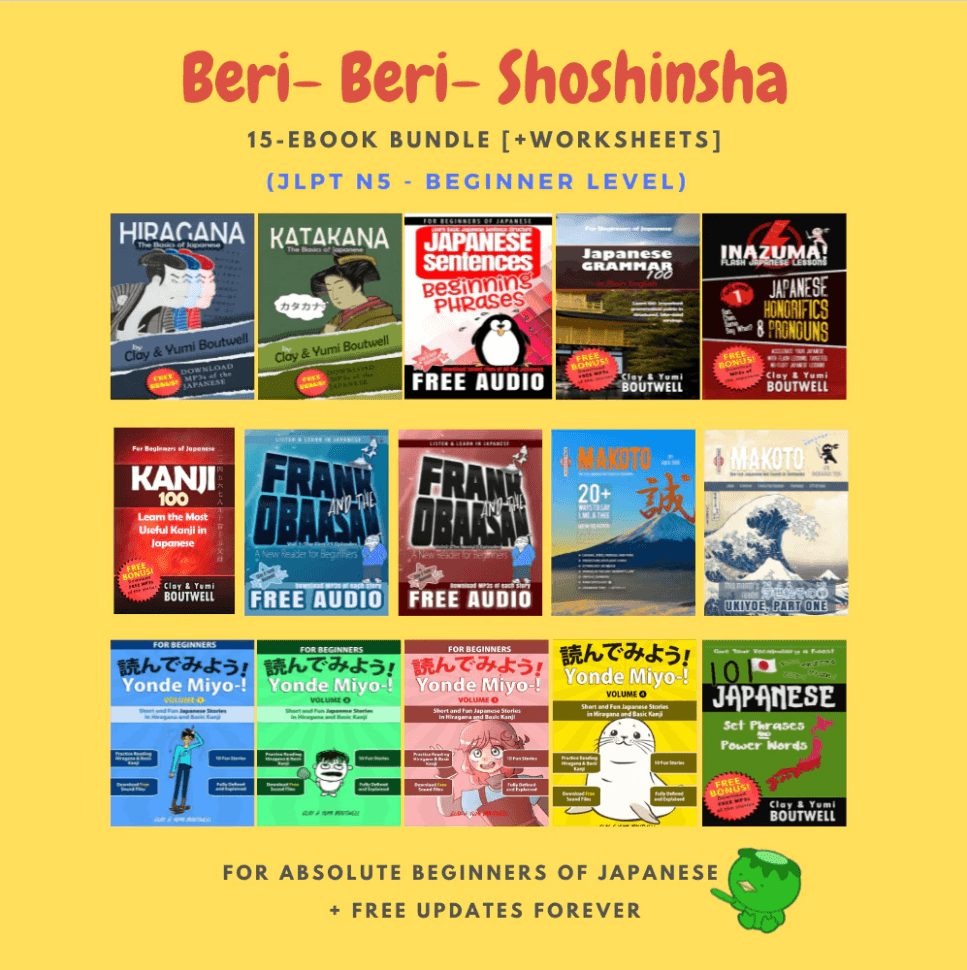
Makoto+ Members, click here to download all the sound files and an Anki flashcard deck just for this lesson. Practice makes perfect!
There are many ways to express regret "I wish I had..." but the two main ways are:
食べればよかった。
I should have eaten. / I wish I had eaten.
食べておけばよかった。
I should have eaten. / I wish I had eaten.
In this lesson, we will mainly look at the second way, but can you figure out what the difference is between the above two sentences? They both mean basically the same thing. But...
- 「食べればよかった。」 simply shows regret for not eating something. For example, a friend tells you how delicious the cake was at yesterday's party, but you didn't try it. Oh, I wish I had eaten that cake!
- 「食べておけばよかった。」 indicates you didn't make certain preparations which led to the current regret. Notice the 「おけば」. This is the ~ば form of おく (to do something in advance). In this case, you may have gone to work without eating breakfast. Now you are starving and can't concentrate on work. Oh, I wish I had eaten breakfast (in advance). If I had, I wouldn't be so hungry now!
There are many cases where either would work, but just remember the 「おけば」 indicates regretting not doing something in advance (preparation).
With that in mind, let's look at the second form (the one that indicates regret for not preparing).
~ておけばよかった I wish I had...; I should have...

■ I wish I had...; I should have...
■ This shows regret for something done or not done in the past.
■ The おけば part expresses a lack of preparation which resulted in the current unhappy situation. It is the ~ば form of おく which is used to show doing something in advance (preparation). To learn how to make the ~ば conditional form, please click here.
Remember, both ~ばよかった and ~ておけばよかった mean "I wish I had..." but the おけば adds a feeling of doing something in advance. So, the ~ておけばよかった form is most appropriate when you are expressing regret for a present condition that could have been avoided had you done something in advance previously.
For example, you bomb a test.
You could say 「もっと勉強すればよかった。」 That is fine, but the ~ておけばよかった form expresses a lack of preparation. Since a test requires study time, this might be better, 「もっと勉強しておけばよかった。」

~て form of a verb + おけば + よかった
See how to make the て form below. For more practice making the て form, please see this lesson.
Verbs
■ Add て to the simple past tense of the verb. This form is surprisingly regular. Simply change the た ending to て and だ ending to で.
To eat: 食べる → 食べた → 食べて
To drink: 飲む → 飲んだ → 飲んで
A Variation of ~ておけばよかった
■ ~とけばよかった
This is a more colloquial form of ~ておけばよかった. It is simply the て and お combined to make a 「と」.
~ておけばよかった → ~とけばよかった
These two forms mean exactly the same thing. They both indicate regret for not doing something that would have prevented the currently unhappy situation. The difference is ~とけばよかった is more casual and often used in spoken Japanese among friends.
In this lesson, we'll give examples for both forms.
食べておけばよかった。
I should have eaten. / I wish I had eaten.
食べとけばよかった。
I should have eaten. / I wish I had eaten.
Remember they mean the same thing, but the ~とけばよかった is more casual.
Practice Speaking
While not as easy as the English "I wish I had...", this form isn't too difficult. Spend time repeating examples. With practice, it will become second nature to you.
Since this form hints at a lack of preparation, let's pretend you flunked a test and now you regret not studying harder. Listen and repeat.
もっと勉強しておけばよかった。
I wish I had studied more.
もっと勉強しとけばよかった。
I wish I had studied more.
Remember the 「もっと勉強しとけばよかった。」 version is more casual.
Was that too fast? Let's try repeating after Yumi as she breaks down each part, reads it slowly, and then reads it normally.
もっと勉強しておけばよかった。
I wish I had studied more.
もっと勉強しとけばよかった。
I wish I had studied more.
例文 EXAMPLE SENTENCES
Examine and then repeat the following example sentences. Focus on your pronunciation and understanding of the construction.
若いころ、もっと日本語を勉強しておけばよかった。
I wish I had studied Japanese harder when I was young.
若いころ、もっと日本語を勉強しとけばよかった。
I wish I had studied Japanese harder when I was young.
Vocabulary & Notes
もっと早くやっておけば良かった。
I should have done it sooner.
もっと早くやっとけば良かった。
I should have done it sooner.
Vocabulary & Notes
水を買っておけば良かった。
I wish I had bought water.
水を買っとけば良かった。
I wish I had bought water.
Vocabulary & Notes
あの時、彼に告白しておけば良かった。
I should have asked him out then.
あの時、彼に告白しとけば良かった。
I should have asked him out then.
Vocabulary & Notes
そのことをあなたに言っておけばよかった。
I should have told you about it.
そのことをあなたに言っとけばよかった。
I should have told you about it.
Vocabulary & Notes
To show greater emotion or regret, you can add なぁ at the end of the sentence.
I wish you had... You should have...
To show a kind of regret someone didn't experience something, simply make the ば form of a verb and add よかった:
その映画を見ればよかったのに。
You should have seen that movie.
Vocabulary & Notes
きのうのパーティーに来ればよかったのに。
I wish you had come to the party yesterday.
Vocabulary & Notes
NEGATIVE
The negative form is ば negative form of a verb + よかった
Click here for the full lesson on saying, "I wish I hadn't..." - it has many more examples.
行かなければよかった。
I wish I hadn't gone.
行かなきゃよかった。
I wish I hadn't gone.
あのことを言わなければよかった。
I wish I hadn't said that.
あのことを言わなきゃよかった。
I wish I hadn't said that.
食べなければよかった。
I wish I hadn't eaten. (Useful for dieters)
食べなきゃよかった。
I wish I hadn't eaten.
Click here for the full lesson on saying, "I wish I hadn't..." - it has many more examples.
And one more. To suggest someone else shouldn't have done something is the same form. ば form plus よかった.
彼女にあんなことを言わなければよかった。
You shouldn't have said such things to her.
彼女にあんなことを言わなきゃよかった。
You shouldn't have said such things to her.
COMMENTS
■ The more you say these examples, the easier it will be to use these forms in conversation. Shadow and repeat after the sound files as much as possible.
■ If you are a Makoto+ member, please click here for the Anki file and sound files for this lesson. Not a member? Click here to learn more about Makoto+, our magazine and membership site.






